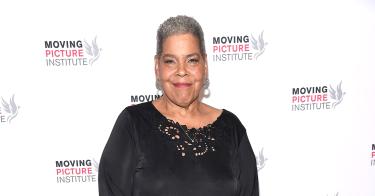In the early 2000s, Virginia Walden Ford, a single mother in D.C.’s low-income neighborhoods, realized the importance of private school choice. Her youngest son, William, was falling in with the wrong crowd and struggling in the local public school.
“William began skipping school and getting into all kinds of trouble in school with teachers and administration. He truly believed that if he acted ‘bad,’ he would be safe,” she recalls.
All this changed, however, when a neighbor provided a private school scholarship for William.
“My neighbor saw something special in my child and wanted to help. … With my William, this neighbor truly believed a quality education was what he needed. And he was right. My son excelled in his new school, and it was the beginning of a happy ending for our family,” Ms. Ford said.
William’s improved academics and behavior thrilled Ms. Ford. At the same time, she was frustrated by the fact that so many D.C. families had no alternatives to public schools, where only 53% of high school students were graduating in four years.
Unable to stand on the sidelines, she became a champion for the D.C. Opportunity Scholarship Program, a private school tuition scholarship program for low-income children in the nation’s capital. She fought tirelessly until Congress passed and President George W. Bush signed into law the D.C. Opportunity Scholarship Program in 2004.
These scholarships enable students to attend a private school of their choosing for a fraction of what it costs the public school system. As Corey DeAngelis of the Reason Foundation observed, “A K-12 education costs around $364,000 for each child in D.C. Public Schools, but only about $125,000 for each voucher student.”
Ms. Ford’s efforts have left a lasting legacy. More than 8,800 children have benefited from the scholarship. Some 20,000 children have applied for the program since it began.
The Opportunity Scholarship Program is producing life-changing results. Scholarship recipients are far more likely to graduate from high school than the control group of students who applied for but were not awarded a scholarship.
High school attainment is an important benchmark. As Patrick Wolf, a professor of education at the University of Arkansas, remarked, “How far you go matters more in life than how much you know, so educational attainment is the best measure of the effectiveness of a choice program.”
Another positive outcome is safety, a major concern for parents when choosing a school. “Students that won the voucher lottery to attend a private school were 34% more likely to report being in a very safe school than their peers in public schools,” Mr. DeAngelis said.
Safer environments are especially important to D.C. children where schools are notoriously dangerous. The Office of the State Superintendent of Education reported that nearly 10% of D.C. Public School students annually self-reported being “threatened or injured with a weapon on school property” at least once. More than 1 in 10 children are bullied on school property, and 10% skip school because they feel unsafe at or on their way to school.
Private schools, on the other hand, respond to parental demands for safety; otherwise, families will take their business elsewhere. “Public schools remain open whether they are safe or not,” Mr. DeAngelis notes.
Moreover, in the Opportunity Scholarship Program’s most recent evaluation, participant test scores caught up with those of their public school peers and achieved parity in math.
Ms. Ford, now a visiting fellow at The Heritage Foundation, is proud of her legacy, but she still wishes that more children could access the D.C. scholarship program. She hopes policymakers will be inspired by the forthcoming movie “Miss Virginia,” which portrays her fight for greater educational opportunity for all children.
As Ms. Ford stated, “We will continue to fight until all children, regardless of background, can receive a good education. Our children and future generations deserve nothing less.”
This piece originally appeared in The Washington Times



